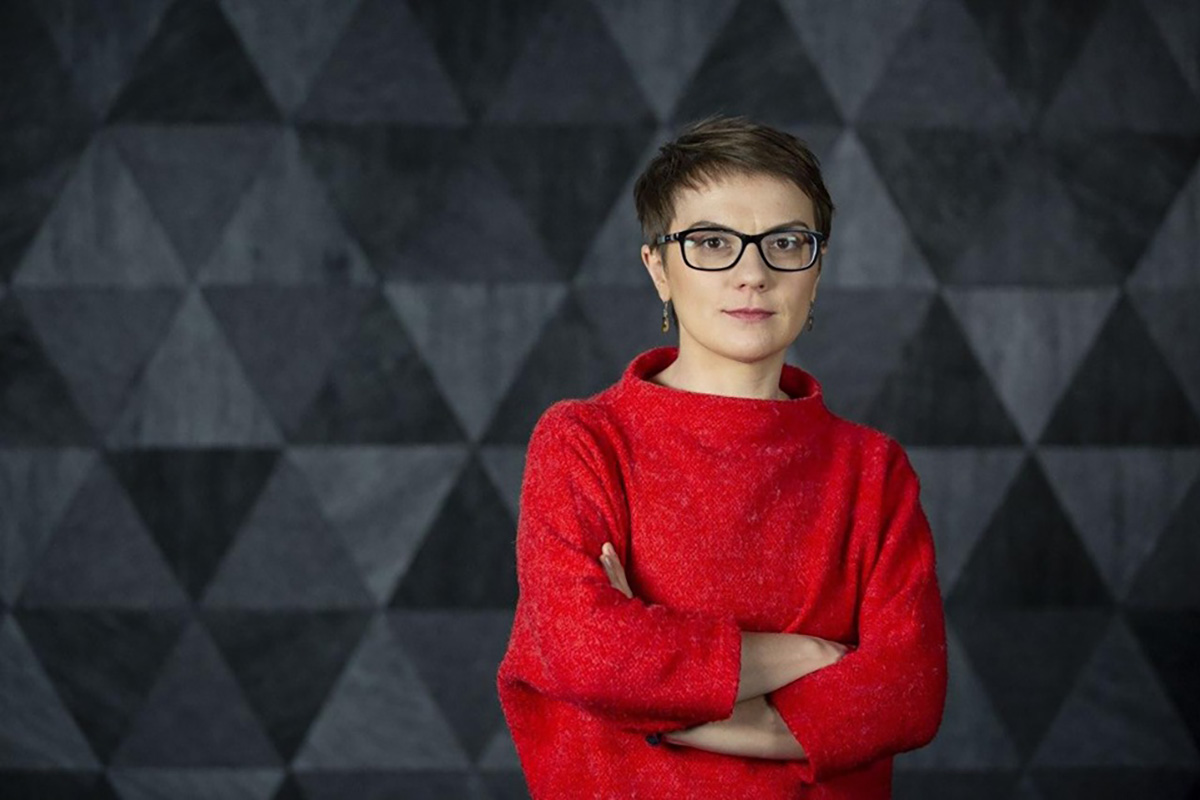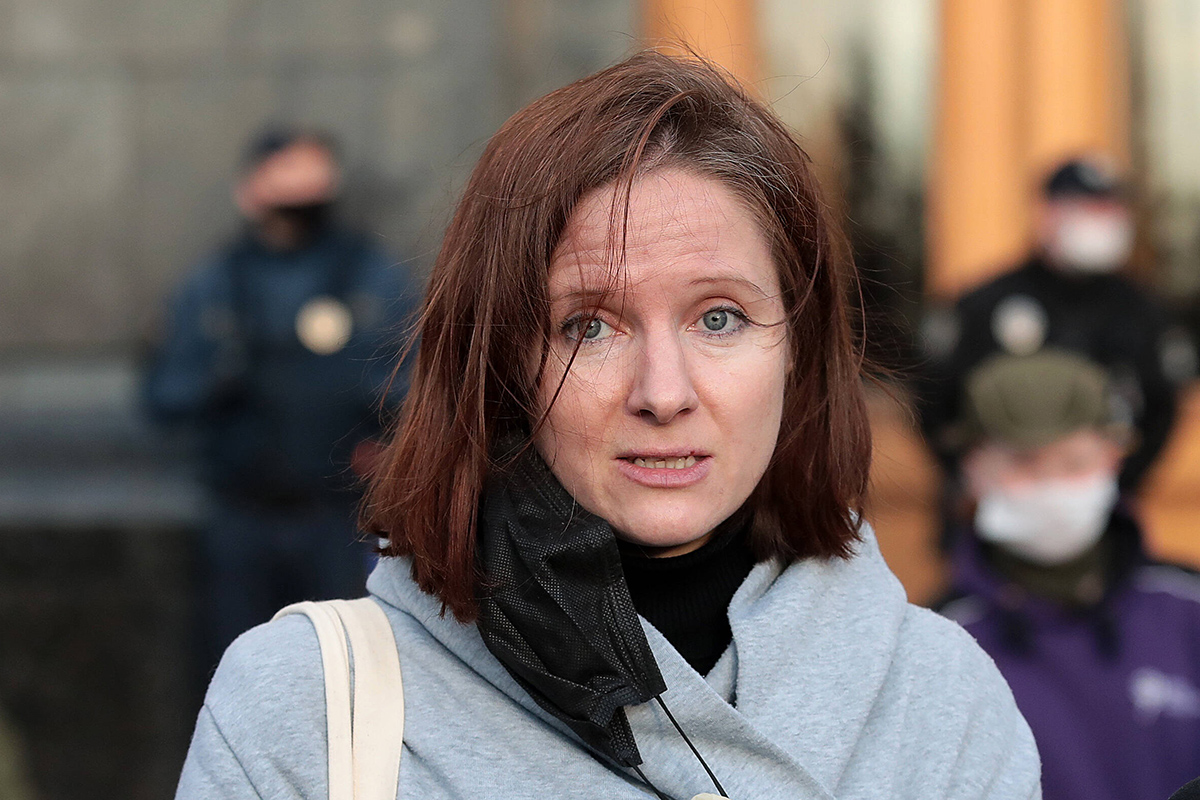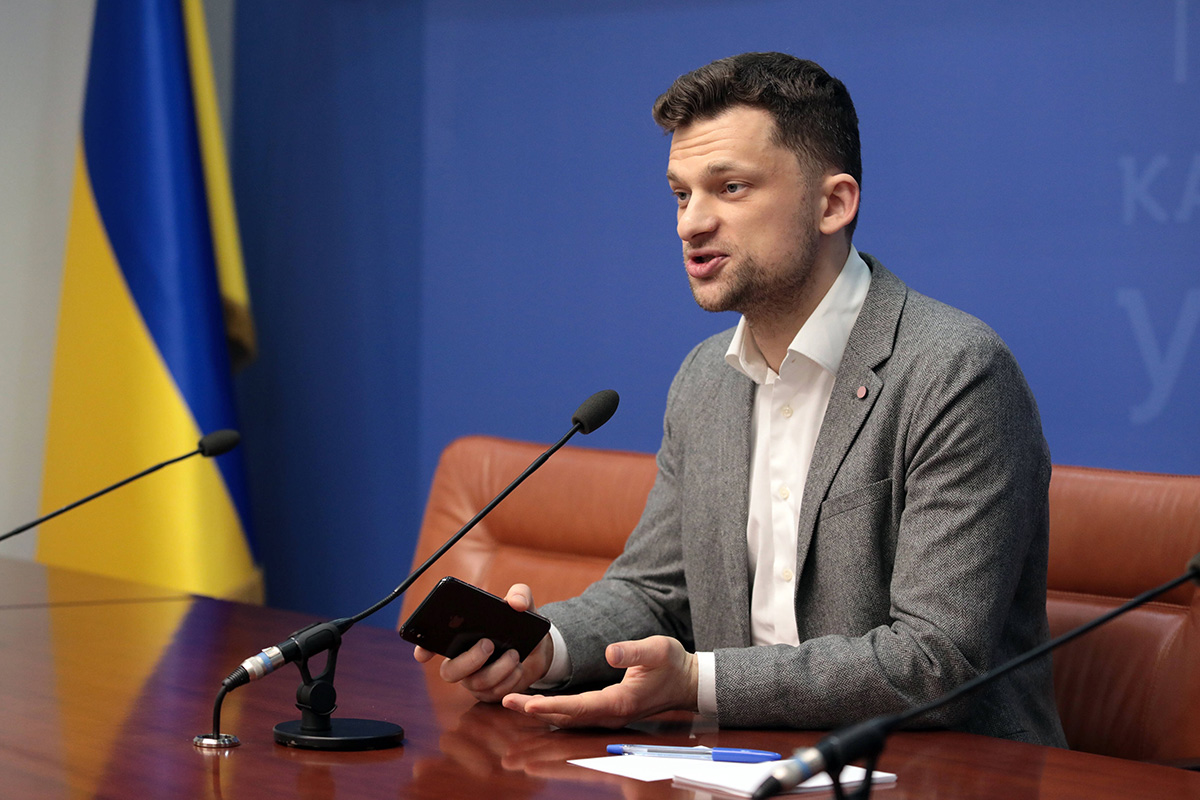Green Energy Transformation: Ukraine’s Civil Society Role
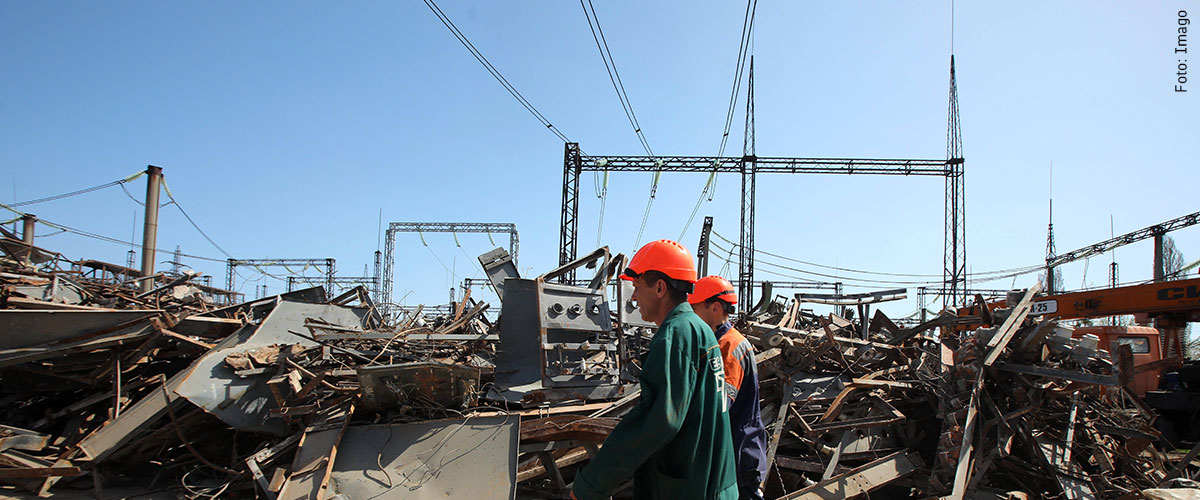
Green Reconstruction amid War – the Role of Ukraine’s Civil Society Organisations in the Green Transformation of the Energy Sector
Anton Granovskyy, Alexandra Gritz, Kira Rjabcew, Janika Wiborny
The authors of this policy brief interviewed eight civil society organisations active in Ukraine’s energy sector as part of an interdisciplinary project course in the master’s degree programme at FU Berlin’s Institute for East European Studies. The policy brief summarises the findings of this research, which was conducted in the summer of 2024, and conveys the recommendations made by the civil society organisations to the public.
Civil society serves as a catalyst for Ukraine’s energy transition
Since Russia’s full-scale invasion of Ukraine in February 2022, the country has faced immense challenges in maintaining its energy system. Repeated attacks on energy infrastructure have caused widespread blackouts, disrupting daily life and economic activity. Despite these setbacks, Ukraine has demonstrated remarkable resilience, with civil society organisations (CSOs) playing a key role in the country’s green energy transition and driving it toward a more sustainable future. As Ukraine aligns its energy reconstruction efforts with EU integration goals, the role of CSOs becomes increasingly critical. These organisations have facilitated cooperation with international partners, promoted green recovery principles and helped shape Ukraine’s post-war energy landscape. Understanding the role of CSOs in the rebuilding process, evaluating their added value, and identifying the opportunities for future improvement are crucial for the development of effective strategies for supporting sustainable energy development and community resilience.
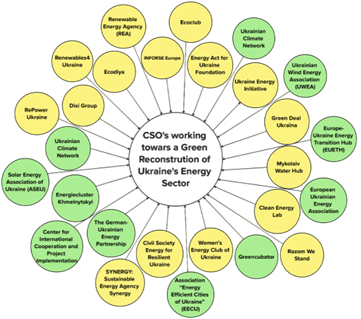
CSOs fulfil varying roles in the green reconstruction
“I see us as...If I need to choose one word, then this is a facilitator, meaning that our goal is to speed up and to facilitate the transition.” – Hanna Montavon, CSO Mykolaiv Water Hub.
- CSOs in Ukraine are key drivers of change by their executing grassroots projects that promote green initiatives and integrate them into local practices. They help shift societal mindsets toward green energy and influence public discourse and policy. Additionally, they identify priority projects which are most valuable for Ukraine’s recovery and development, facilitate partnerships and enhance transparency. They also submit opinions on energy legislation and advocate for the implementation of critical energy policy decisions, such as Ukraine’s coal phaseout by 2035.
- CSOs act as communicators between various stakeholders, fostering dialogue and trust. They bridge gaps between businesses and communities, government and private sector, and state organisations and private actors, as well as between international partners and the Ukrainian government and between the national government and local authorities. By facilitating communication and knowledge exchange, CSOs are helping to align diverse interests and strategies toward shared goals. According to a representative of one interviewed CSO, “What civil society organizations do in these conditions is connect various stakeholders, unite their efforts, and coordinate their contributions to implement and finalise infrastructure projects.”
- CSOs are addressing knowledge gaps by educating local staff to enhance their capacity to implement energy projects effectively. They provide scholarships and strategic management education to younger generation of Ukrainians interested in transforming the energy sector. Through these efforts, CSOs are bridging generational divides and ensuring that there are skilled professionals in the near future. For example, Hanna Montavon from Mykolaiv Water Hub states that they “provide scholarships for girls with a strong aptitude for technical and natural sciences from fifth to 12th grade in Ukraine to support their interest in these fields” to “create a talent pipeline for Ukraine, for the South of Ukraine”.
- CSOs play the crucial watchdog role in monitoring and coordinating green reconstruction efforts. They promote transparency throughout the process and help diverse actors to remain focused on the overarching goal of a modernised, sustainable, and EU-aligned energy sector. Andriy Martynyuk from Ecoclub states that, “We are constantly doing, and we’ve been doing, like watchdogging on what is happening on energy and climate policies and the government plans and so on. With the EU accession and with our candidate status, we’ve got kind of simpler tasks, I would say, because there is the Ukraine facility and Ukrainian plan from the side of the Ukrainian government. […] It is why we can inform the European Commission to lobby for the change we see needed in the reforms and so on. Because it’s much more promising way than to try to push our government […].”
February 2022 marks a starting point of growth and changes
The following CSOs provide examples of adaptations made in response to the full-scale Russian invasion.
Mykolaiv Water Hub: Founded in 2021, Mykolaiv Water Hub initially focused on waterworks capacity building. Following the invasion, it expanded its network post-invasion to include the private sector, universities, and municipalities. This strategic shift toward reconstruction has led to projects such as rebuilding the Water Innovation Lab and launching research and development programs in the water and energy sector.
Ecoaction: Initially focused on renewable energy policy advocacy, the organisation has extended their focus to include the implementation of green energy solutions in schools and hospitals, reflecting the urgent energy security concerns caused by the war. These initiatives include educational projects to raise children’s awareness of sustainability. Governmental and public support for renewable energy initiatives has grown, driven in part by these successful projects with tangible results. The projects have provided effective solutions against blackouts and for more energy security in general.
Ecoclub: Active for over two decades, the Rivne-based NGO focuses on green energy in municipalities, a mission that intensified after 2014. Following the full-scale invasion, it has gained prominence for installing solar systems in hospitals, further reinforcing its commitment to local sustainability.
The Russian invasion has led CSOs to evolve their roles, from advocacy to direct implementation of critical infrastructure projects. This shift is essential for addressing Ukraine’s energy and reconstruction needs, with renewable energy taking centre stage.
In light of multiple challenges, CSOs are finding innovative solutions
Civil society organisations in Ukraine are addressing challenges across government policy, energy security, and socio-economic factors. One of the central issues mentioned is the implementation of national strategies on a local level. While national ambitions, such as the National Energy and Climate Plan (NECP) and Nationally Determined Contributions (NDCs), are established to meet EU standards, local communities often struggle to understand their role in these strategies. This disconnect, along with a lack of consideration for local needs, stems from inadequate communication between government bodies and local stakeholders.
In response, CSOs engage in advocacy efforts to shape government policy, forming working groups to bridge communication gaps between authorities. An example of this is the think tank DiXi Group, whose team contributed to the development of the National Energy and Climate Plan (NECP), co-organized consultations with Ukrainian communities regarding the NECP’s objectives, and worked closely with these communities to develop local energy plans. Another major challenge is maintaining clear government priorities. Many fear that the urgency of energy sector problems could overshadow the most sustainable, long-term solutions. To counter this, CSOs are actively pushing ambitious climate and energy goals, even amid wartime conditions.
Notable achievements include legislative successes, such as maintaining the coal phase-out target for 2035. In a more direct manner, CSOs have taken up projects to install renewable energy systems, particularly solar PV with storage systems, to power critical infrastructure like hospitals but also schools and other municipally owned institutions. These initiatives are an immediate response to frequent power outages but also serve as proof-of-concept projects to showcase how decentralised energy can function at scale. Hanna Montavon from Mykolaiv Water Hub underlined the importance of this goal, stating that “because Ukraine is going through a very tragic, but in the same time, unique experience, when due to the ongoing war, we need to think quickly, how to make our infrastructure diversified, decentralised, and not exposed, the single source of either energy or water will not be exposed to direct attacks. Because if you have multiple sources, that is much more difficult to destroy it.” Proof-of-concept projects are intended to have knock-on effects for investment from the private sector, which may lack capacity to test pilot projects, and to attract the attention of potential donors. Andriy Martynyuk from Ecoclub states the following: “The immediate goal is to support municipalities with backup energy sources due to the blackouts. But what we see as a [broader] strategic aim behind this project is to create as much successful pilot projects with renewables in energy sector in municipalities as possible to actually contribute to this capacity building in this regard and to let municipalities understand how it might work. To stimulate demand for further adoption.” A successful example of this is the secured support from Germany’s Ministry for Economy and Climate Action after Minister Robert Habeck’s visit of a pilot project. CSOs have also taken on an educational role, offering training programs on practical energy solutions such as balcony solar systems and raising public awareness about reducing energy consumption. These efforts complement or substitute for government actions, thereby demonstrating the capacity of CSOs to step in where state institutions are overstretched.
Cooperation by and with CSOs can be improved
CSOs and other stakeholders in Ukraine collaborate successfully in various constellations. For example, the CSO Razom We Stand states that “we work with the German Ministry of Economy. We work with GIZ [Deutsche Gesellschaft für Internationale Zusammenarbeit – German International Cooperation Society] in Ukraine and in Germany. We work with people and activists in Belgium, Germany, and many other countries. We have worked with the USA, with the Department of Energy.” But there are also challenges within existing cooperation. While partnerships with foreign players (ministries, CSOs, private sector) are mostly positive, there are challenges within the cooperation between Ukrainian CSOs, and between Ukrainian CSOs and Ukrainian ministries, including ineffective communication, and even imposed governmental authority over CSOs. These conflicts interfere with productive and effective cooperation and could delay the reconstruction of the sustainable energy sector in Ukraine. Additionally, poor communication structures lead to gaps in collaboration among stakeholders, further limiting their ability to achieve shared goals. One CSO observed that “we have some competition from [the] NGO side and [the] government. [...] They [governmental stakeholders] take credit for what local NGOs are doing. [...] Some players in our industry have some cases when Ministries communicate about the projects [implemented by NGOs] like they are the projects of [the] Ministry of Education [...] but they do nothing to help us.” Resource competition poses another challenge, with CSOs often competing for limited financial and human resources, which undermines their collective impact. Finally, the ongoing war adds to the operational complexities, making it difficult to implement sustainable energy projects and engage in long-term planning. These challenges all together hinder the potential of CSOs to drive meaningful change in their communities.
Ukrainian CSOs have become key stakeholders in driving the country’s transition to green energy and contributing to war related reconstruction, swiftly adapting from advocacy to direct implementation of renewable energy projects despite the challenges of ongoing conflict and infrastructure destruction. Effective green reconstruction of Ukraine’s energy sector requires stronger collaboration between the public, private, and civil society sectors. Key to this effort are long-term investments, clear communication structures, and an enhanced role for CSOs in monitoring reforms. Greater cooperation between CSOs, government agencies, international partners, and businesses is essential to ensuring Ukraine’s green recovery and energy transition.
CSO’s recommendations for action
Recommendations for governments committed to help Ukraine’s energy sector’s sustainable reconstruction
- Promote international engagement: To drive reconstruction, the international community needs to invest more. Specifically, government investment guarantees that cover war risks could incentivise the private sector to make long-term investments.
- Secure long-term funding: Stable and long-term funding for civil society improves the predictability and therefore the effectiveness of the work of civil society actors.
Recommendations for the Ukrainian Government
- Improve information exchange between stakeholders: The Ukrainian government, private companies and the civil society need to exchange information more effectively to gather pool expertise and avoid blind spots. Effective networking in the short term can save resources due to possible wrong turns in the long run.
Recommendations for the Ukrainian civil society
- Reduce competition, strengthen cooperation: Competition, especially for funding, between Ukrainian CSOs should be replaced by increased cooperation to pursue common goals more effectively.
- Utilise opportunities for international cooperation: Enhanced cooperation between Ukrainian CSOs and international stakeholders presents a strategic opportunity to accelerate Ukraine’s transition to a sustainable, decentralised energy system. Aligning these efforts with Ukraine’s EU integration goals will further support the country’s resilience and long-term sustainability. With appropriate international support, Ukraine’s CSOs can continue to be a driving force in rebuilding energy infrastructure and securing a green future. “The head question is investment and guarantee for investment” (Quote from Razom We Stand).
- Enforce reforms: Civil society could play a stronger role in monitoring the rightful implementation of reforms in the energy sector to accelerate the transition to renewable energy.
Civil society organisations in Ukraine are crucial to the country’s green energy transition and recovery. With the right investments and partnerships, they can help overcome current challenges and support Ukraine’s way toward a more sustainable and resilient future.
The authors would like to thank the following Ukrainian CSOs for taking the time to talk to us: Mykolaiv Water Hub, Ecoclub, Razom We Stand, DiXi Group and Ecoaction. We would also like to express our sincere thanks to the CSOs who wish to remain anonymous.
No power cuts could stop them – thank you for your openness, honesty and trust.
![]()
Verwandte Themen
Newsletter bestellen
Tragen Sie sich in unseren Newsletter ein und bleiben Sie auf dem Laufenden.



